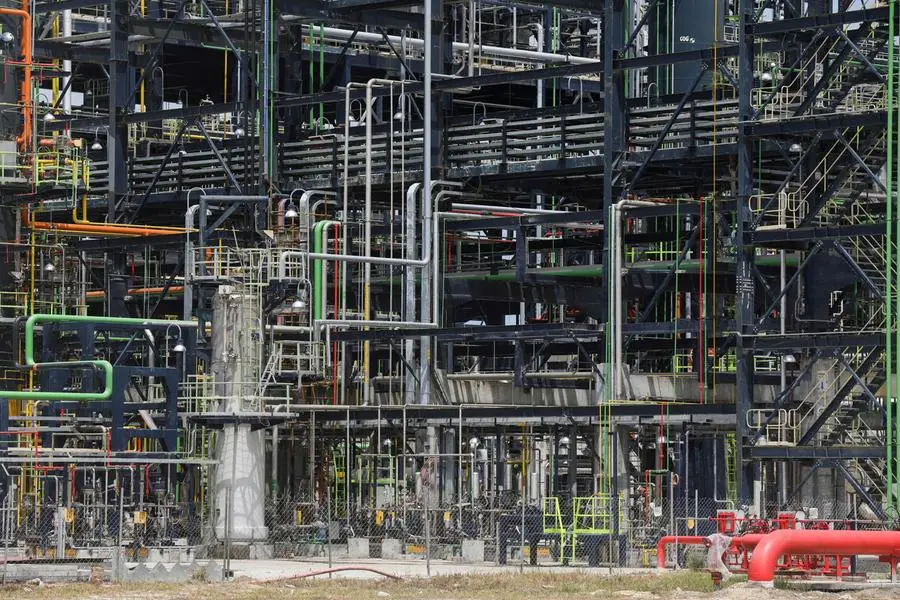PHOTO
NEW YORK - Oil prices settled higher on Friday as geopolitical tensions in the Middle East more than offset a forecast from the International Energy Agency for slowing demand.
Brent crude futures settled up 61 cents, or 0.74% at $83.47 a barrel. U.S. West Texas Intermediate crude settled $1.16, or 1.49%, higher at $79.19 with the nearby March contract expiring on Tuesday. The April contract rose 87 cents to $78.46.
For the week, Brent gained more than 1% and the U.S. benchmark rose about 3%.
The growing risk of a wider conflict in the Middle East supported crude prices.
On Thursday, Hezbollah said it fired dozens of rockets at a northern Israeli town in a "preliminary response" to the killing of 10 civilians in southern Lebanon, the deadliest day for Lebanese civilians in four months of cross-border hostilities.
The oil market's reaction to news from the Middle East was moderate, said Giovanni Staunovo, an analyst at UBS.
"The market sees oil still flowing and disruptions have been small," he said.
Gaza's largest functioning hospital was under siege in Israel's war with Islamist group Hamas, as warplanes struck Rafah, the last refuge for Palestinians in the enclave, officials said.
Threats persisted in the Red Sea after a missile fired from Yemen struck an India-bound tanker carrying crude oil.
U.S. producer prices increased more than expected in January amid strong gains in the costs of services, which could amplify inflation worries. Still, a slump in retail sales prompted hopes the Fed will soon start cutting rates, which could support oil demand.
"Hopes for U.S. rate cuts provided support on Thursday, but investors are now adjusting their positions ahead of a long (holiday) weekend in the U.S.," said Hiroyuki Kikukawa, president of NS Trading, a unit of Nissan Securities.
On Thursday, the IEA said global oil demand growth was losing momentum and trimmed its 2024 growth forecast.
The agency expects global oil demand growth to decelerate to 1.22 million barrels per day (bpd) in 2024, about half of the growth seen last year, in part due to a sharp slowdown in Chinese consumption. It had previously forecast 2024 demand growth of 1.24 million bpd.
The Organization of the Petroleum Exporting Countries (OPEC) expects oil use to keep rising for the next two decades.
U.S. energy firms this week cut the number of oil and natural gas rigs in operation for the second time in three weeks, energy services firm Baker Hughes said in its closely followed report on Friday.
(Additional reporting by Natalie Grover in London, Mohi Narayan in New Delhi and Yuka Obayashi in Tokyo; editing by Jonathan Oatis, Kirsten Donovan and David Gregorio)





















